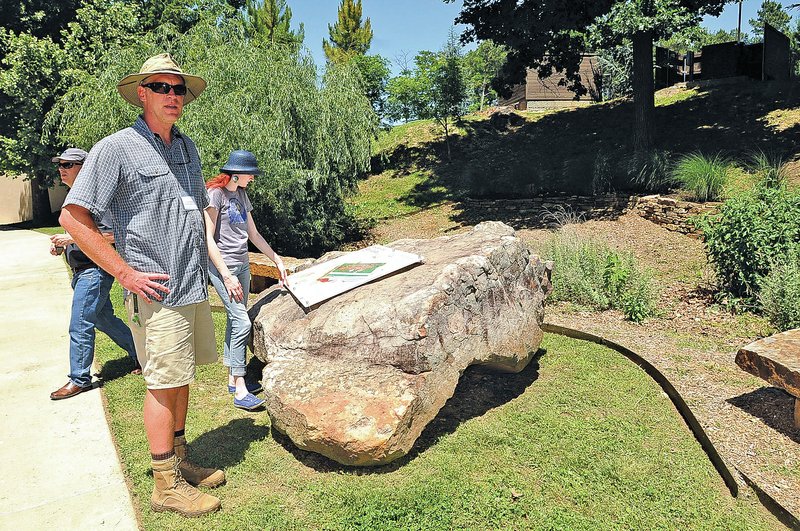ROGERS -- More schools statewide want environmentally friendly projects and programs to improve school grounds and to teach children hands-on science.
"(School) districts are becoming advocates for an Earth-friendly approach or going green to encompass many areas and to enhance the science experience for students," said Megan S. Witonski, Arkansas Department of Education Learning Services assistant commissioner. Witonski will be Springdale's assistant superintendent for personnel as of July 1.
Students in Northwest Arkansas are building rain cisterns and rain gardens, working in recycling programs and making documentaries about water quality. Environmental advocates say a growing number of schools are interested in hands-on projects helping the environment and teaching science and conservation.
Advocates talked about local successes in improving school grounds, exciting children about science and providing "teaching moments," during the 2014 Sustainability Summit in Rogers this week. About 60 people registered for the summit, which was hosted by the Illinois River Watershed Partnership, said Delia Haak, executive director.
Schools use rain gardens, composts, vegetable gardens and even water sampling as a way to teach school children, Haak said.
The partnership spent about $150,000 in the past three years on rain gardens, she said.
"It is a growing trend," Haak said.
The state doesn't track what schools are using environmental projects and programs as a teaching tool, or as a way to improve school properties, Witonski said. Even without state tracking, anecdotal evidence points to more interest among schools, said Tony Ramick, grants manager with the Arkansas Natural Resources Commission. The commission helps fund mini-grants supporting rain gardens, including about 60 in Northwest Arkansas.
Rain gardens are very popular, Ramick and Haak said.
The state Education Department encourages using hands-on learning, including those projects that could be considered eco-friendly, Witonski said.
"Environmentally friendly programs that help students have a sense of ownership in the space they each encompass is critical for understanding our surroundings, how our environment works and the individual responsibility we have to protect that environment," Witonski said. "School leaders understand the importance of providing those learning experiences for students in the Natural State on a daily basis."
Schools have the autonomy to decide what projects they want to pursue, Witonski said.
Other organizations are approaching school officials about pursuing or expanding environmental projects.
The U.S. Green Building Council Arkansas Schools Challenge helps pay for projects, such as outdoor classrooms, composting and rainwater harvests, said member Mark Cloud, who gave a presentation at the summit.
Statewide, about 80 schools participate in the challenge yearly, Cloud said. About 32 Northwest Arkansas schools have participated in the challenge in the past three years. This past school year, seven schools in Benton and Washington counties participated in the challenge, according to information from Ginny Kurrus, education coordinator for the council.
Kurrus said the council plans to push harder for schools to participate this coming school year. Members plan to speak with parents, teachers and other organizations. The group hopes participation will become stronger in more rural schools, particularly in southern Arkansas, Kurrus said.
"I think it makes (students) excited to be in school," said Cloud.
Debbie Lamb, a facilitator for the Environmental And Spatial Technology program at Har-Ber High School in Springdale, said the environmental projects at her school support independence, critical thinking and leadership skills. Her students have written grants to pay for projects, sought out city and business partners and solved real-world problems, she said.
Each year, students tackle 10 to 15 projects, she said.
"It's just a really cool way of learning," Lamb said. "It's about bringing people together."
NW News on 06/14/2014

